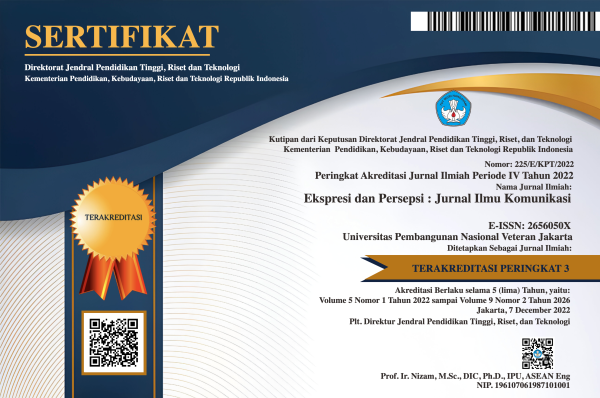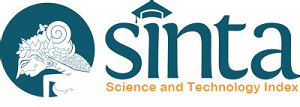Cinderella: The Feminist Tale (A Discourse Analysis of the Story’s Adaptation through Podcast)
DOI:
https://doi.org/10.33822/jep.v7i2.7691Keywords:
adaptation, Liberal Feminism, Cinderella Tale, PodcastAbstract
Cinderella’s character and feminist ideology are contradictory. The phrase “Cinderella Complex Syndrome,” which refers to women’s dread of independence, supports this idea. Fairy tales are full of beautiful, passive, submissive princesses, as well as bold, independent female constrained by archaic gender stereotypes. They uphold conventional norms about gender roles and value. Fairy tale adaptation is not a new phenomenon; for centuries, people have used it to further their objectives, uphold their cultural standards, and further their ideologies. The construction of feminism in Cinderella rhyme via podcast is the main focus of this study. This rendition carries the feminist ideals while representing an unexpected tale. This study uses discourse analysis methodology, relying on the ideas of liberal feminism and Linda Hutcheon’s theory of adaptation. According to this theory, adaptation encompasses both the process and the final output. It is evident from Cinderella’s podcast that retelling of the narrative is dependent on the story teller’s perception and incorporates a new ideology – liberal feminism, which is associated with the second wave of feminism. This study shows how the liberal feminism ideology in Cinderella’s rhyme is constructed through modifications in the storyline and characterization. This Cinderella portrayal gives more depth that doesn’t match the image of a traditional princess and shows that she can accomplish anything she sets her mind to. This Cinderella adaptation tale shows Cinderella active role that frees herself from her oppressor as the development of liberal feminism in her character. Cinderella’s assertive voice in voicing her demands and desires also supports the liberal feminism idea.
References
Article19. (2020). Freedom of expression and women’s equality: Ensuring comprehensive rights protection 2020. Retrieved from https://www.article19.org/wp-content/uploads/2020/11/Gender-Paper-Brief-1.pdf
Ashari, HT., Affandy, AN., & Ngatma’in. (2024). Kampanye Inklusivitas LGBT Disney: Analisis Konten Kualitatif dalam Film Strange World (2022). Ekspresi Dan Persepsi : Jurnal Ilmu Komunikasi, 7(1), 175–193. https://doi.org/10.33822/jep.v7i1.6740
Bartu, C. M. (2021). When Fairy Tales Go Astray: The Dark Humour of Violence in Roald Dahl’s Revolting Rhymes. Hacettepe Üniversitesi Edebiyat Fakültesi Dergisi, 38(2), 522–531. https://doi.org/10.32600/huefd.889259
Berlianti, A. D. (2021). The stereotypical representation of women in the classic fairy tales Snow White, Cinderella, and Sleeping Beauty. Indonesian Journal of Social Sciences, 13(01), 21–32.
Demir, M., Kaya, L., Turan, M., Vural Batik, M. (2021). Cinderella Syndrome “Women with Fear of Independence”: Developing a Scale. International Journal of Psychology and Educational Studies, 8(1), 166–173. https://doi.org/10.17220/ijpes.2021.8.1.236
Dupont, H. (2015). If The Shoe Fits: An Analysis of Historical and Contemporary Adaptations of Cinderella, 56. Retrieved from http://vc.bridgew.edu/cgi/viewcontent.cgi?article=1091&context=honors_proj
Eslit, E. R. (2023). Tales through a Cultural Lens: Exploring the Global Significance of Cinderella, Snow White, and Sleeping Beauty. International Journal of Languages and Culture, 3(2), 12–25. https://doi.org/10.51483/ijlc.3.2.2023.12-25
Fairclough, N. (2019). Critical Discourse Analysis “The Critical Study of Language” (2nd editio). London: Routledge.
Ginting, E., & Wiradharma, G. (2023). Live in Stigma: “Fat Shaming” of Woman (Discourse Analysis on Facebook Social Media Fat Women Association of Indonesia). Ekspresi Dan Persepsi : Jurnal Ilmu Komunikasi, 6(1), 138–145. https://doi.org/10.33822/jep.v6i1.4924
Gölbaşı, S. (2017). Critical Approach in Social Research: Fairclough’s Critical Discourse Analysis. The Online Journal of Communication and Media, 3(4), 5–18.
Hambur, F. M., & Nurhayati, N. (2019). Feminism thoughts in 20th and 21st century literary works: A comparative study. EduLite: Journal of English Education, Literature and Culture, 4(2), 183. https://doi.org/10.30659/e.4.2.183-193
Hamraoui, M. A. (2023). Feminist Hypertextuality in Fairy Tale Adaptations : Cinderella , from Docility to Independence, 10(1), 499–518.
Hargita, B., & Nurhadi. (2022). The Reflection of Cinderella Complex on Women in Kenanga Novel by Oka Rusmini. International Journal of Linguistics, Literature and Translation, 5(12), 76–83.
Henni, H. (2010). Stylistic Analysis of Roald Dahl’s Cinderella. K@Ta, 12(1), 42–58. https://doi.org/10.9744/kata.12.1.42-58
Hutcheon, L., & O’Fyynn, S. (2013). A Theory Adaptation (2nd editio). New York: Routledge.
Jahedi, M., Abdullah, FS., & Mukundan, J. (2015). An Overview of Focal Approaches of Critical Discourse Analysis. International Journal of Education and Literacy Studies, 2(4), 195–196. https://doi.org/10.7575/aiac.ijels.v.2n.4p.28
Karami Nejad, P., & Zohdi Faculty member, E. (2014). Cinderella or Fiona? International Journal on Studies in English Language and Literature (IJSELL, 2(9), 138–144. Retrieved from www.arcjournals.org
Lefebvre, B. (2013). Textual Transformations in Children’s Literature Adaptations, Translations, Reconsiderations. London: Routledge.
Lubis, A. Y. (2015). Pemikiran Kritis Kontemporer. Jakarta: PT. RajaGrafindo Persada.
Maier, SE. & Raven, J. (2020). Gen Z Cinder(f)ellas: Girl Powered Gender Adaptations in the A Cinderella Story Films. In S. Woltmann (Ed.), Woke Cinderella (pp. 15–41). Lanham: Lexington Books.
Morton, E. M. (2020). Emotionally Ever After: A Qualitative Analysis of Socio-Emotional Spaces Inhabited by Female Fairy Tale Characters and their Cinematic Adaptations. York University.
Murdoch, C. (2011). The Phoney and the Real: Roald Dahl’s Revolting Rhymes. In C. McAra & D. Calvin (Eds.), Anti-Tales: The Uses Disenchantment (pp. 164–173). Cambridge: Cambridge Scholars Publishing.
Parsons, L. T. (2015). Century Expressions of Femininity. Study and Scrutiny Research on Young Adult Literature, 5(1), 85–108.
Raina, J. A. (2017). Feminism : An Overview, 04(13), 3372–3376.
Ramanathan, R., & Hoon, TB. (2015). Application of Critical Discourse Analysis in Media Discourse Studies. 3L: Southeast Asian Journal of English Language Studies, 21(2), 57–68. Retrieved from /citations?view_op=view_citation&continue=/scholar%3Fhl%3Den%26start%3D40%26as_sdt%3D0,5%26scilib%3D1&citilm=1&citation_for_view=OOHtgQUAAAAJ:u-x6o8ySG0sC&hl=en&oi=p
Robbins, L. and Savigar, K. (2013). Cinderella (Recorded by The Cheetah Girls). On The Cheetah Girls [Soundtrack].
Rochère, M. H. D. de la. (2016). Cinderella Across Cultures: New Directions and Interdisciplinary Perspectives. Michigan: Wayne State University Press.
Saha, B. (2023). Feminism in Society, Art and Literature: An Introspection. Galore International Journal of Applied Sciences and Humanities, 7(1), 1–5. https://doi.org/10.52403/gijash.20230101
Šarec Miškin, M. (2019). Two Picturebook Adaptions of “Cinderella” (Master Thesis). University of Zagreb. Retrieved from https://repozitorij.ufzg.unizg.hr/islandora/object/ufzg%3A1812/datastream/PDF/view
Saha, S.& Safri, TS. (2016). Cinderella Complex: Theoretical Roots to Psychological Dependency Syndrome in Women. International Journal of Indian Psychology, 3(3). https://doi.org/10.25215/0303.148
Su, T., & Xue, Q. (2010). The Analysis of Transition in Woman Social Status—Comparing Cinderella with Ugly Betty. Journal of Language Teaching and Research, 1(5), 746–752. https://doi.org/10.4304/jltr.1.5.746-752
Xu, H., Zhang, Z., Wu, L., & Wang, C. J. (2019). The Cinderella complex: Word embeddings reveal gender stereotypes in movies and books. PLoS ONE, 14(11), 1–18. https://doi.org/10.1371/journal.pone.0225385
Yashinta, F. O., & Nurhayati, S. (2024). On the basis of sex: a liberal feminist analysis of women’s struggle for education. Leksika: Jurnal Bahasa, Sastra Dan Pengajarannya, 18(1), 1. https://doi.org/10.30595/lks.v18i1.16853
Downloads
Published
Issue
Section
License
Copyright (c) 2024 Puri Bestari Mardani, Maria Febiana Christanti

This work is licensed under a Creative Commons Attribution-NonCommercial 4.0 International License.














